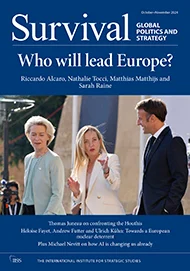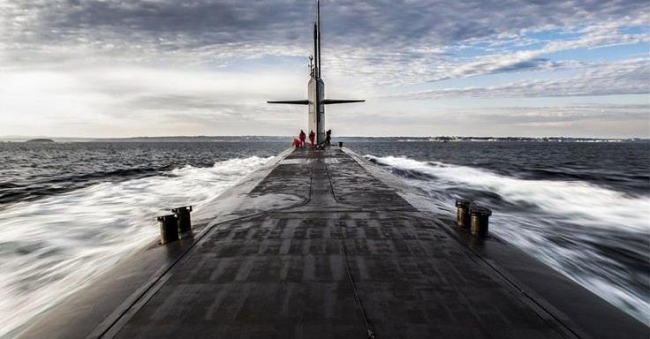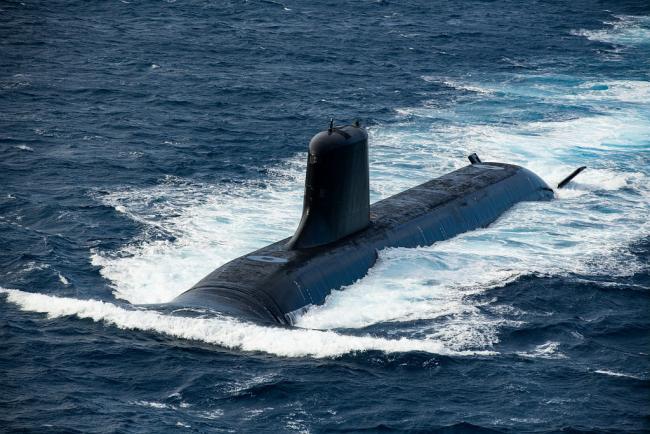Towards a European Nuclear Deterrent

While major European powers may have to contemplate nuclear deterrence without America, the national flexibility and European financial support required to make it feasible is currently difficult to imagine.
For decades, the primordial fear of European NATO allies has been that America would retreat from Europe and leave them threatened by a powerful foe in close proximity – first the Soviet Union, now Russia – and dependent on their own limited ability to organise security. Not only did Europeans dread losing America’s military might, but some also felt that without its diplomatic heft to moderate internal European dynamics, the continent’s erstwhile power struggles could return. America did not retreat for almost 80 years, and it still might not. But strategic and domestic circumstances could also force US policymakers to choose between engagement or disengagement, Europe or Asia.
Were the United States to opt for disengagement, Europeans would be caught unprepared amid the ongoing Russia–Ukraine war – the largest on the continent since the Second World War – and ill-equipped to face Russia alone. In the most extreme scenario, the power vacuum would allow ambitious leaders to claim the lead, while a cacophony of divergent national calls would undermine any sense of European unity. Some could go their own way and balance against Russia, including by nuclear means. Others could bandwagon with Moscow. The end of NATO and the European Union could be nigh.
For purely self-interested reasons, of course, the US may never completely dissociate itself from European security. The Russia–Ukraine war, now in its third year, could come to an end sooner rather than later, with both sides having exhausted their military options. Given the current dynamism in world affairs, making bold and specific predictions about when and under what exact circumstances America might pivot away is a rash and futile endeavour. What matters for European security is that, due mainly to the rise of China, US imperial overstretch and rising populism in America, chances are higher today than at most points in recent European history that the continent will see some form of US pullback in the medium term. Depending on the details, Europeans might then have to reassess the role of nuclear weapons in European security.
The debate has already started, most prominently with French President Emmanuel Macron’s speeches on the European role of French nuclear forces and German politicians’ continued public musings about nuclear deterrence for Europe and Germany. If Donald Trump, who is openly disdainful of NATO and admiring of Russian President Vladimir Putin, wins the US presidential election, the issue could reach a head. Europe’s major powers – France, the United Kingdom and Germany – may be compelled to initiate formal discussions on nuclear deterrence in a post-American Europe. These anticipatory assessments of their national perceptions, policies and preferences, before the centrifugal forces of national self-interest gather, should help identify similarities and differences in their respective positions and facilitate a common European approach.
Read the full article on IISS website.

Available in:
Themes and regions
Share
Related centers and programs
Discover our other research centers and programsFind out more
Discover all our analysesTaking the Pulse: Can Europeans Build Their Independent Extended Nuclear Deterrent?
Confronted with a U.S. disengagement and the Russian threat, Europeans are reconsidering their stance on nuclear deterrence. Given the capabilities of the French and British arsenals, can Europe develop an independent nuclear deterrent?
The Future of Nuclear Proliferation after the War in Ukraine
In the context of deep changes to the international security environment, especially the war in Ukraine, the risks of nuclear proliferation seem quite high, especially in the Middle East and East Asia.
Naval Nuclear Propulsion: The Technical and Strategic Challenges of a Restricted Technology
The technical and operational capabilities of naval nuclear propulsion - discretion, power, autonomy and manoeuvrability - make this technology a strategic asset for nuclear deterrence.












